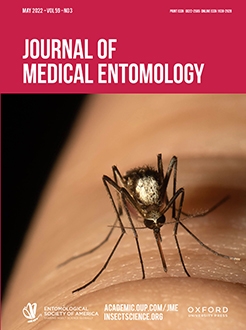Precise identification of anopheline species is paramount for incrimination of malaria vectors and implementation of a sustainable control program. Anopheline mosquitoes are routinely identified morphologically, a technique that is time-consuming, needs high level of expertise, and prone to misidentifications especially when considering Amazonian species. The aim of this study was therefore to develop a DNA-based identification technique to supplement traditional morphological identification methods for the discrimination of anopheline mosquitoes collected in French Guiana. The internal transcribed spacer 2 (ITS2) region of ribosomal DNA (rDNA) for anopheline species was amplified by polymerase chain reaction (PCR), and digested with AluI/MspI restriction enzymes. PCR-restriction fragments length polymorphism (RFLP) assay was compared to sequencing of the ITS2 region for validation. Fifteen Anopheles species have shown distinct PCR-RFLP profiles. A concordance of 100% was obtained when identification by PCR-RFLP was compared to sequencing of ITS2. A high throughput, fast, and cost-effective PCR-RFLP assay has been developed for unambiguous discrimination of fifteen anopheline mosquito species from French Guiana including primary and suspected secondary malaria vectors.
How to translate text using browser tools
9 February 2022
Discrimination of 15 Amazonian Anopheline Mosquito Species by Polymerase Chain Reaction—Restriction Fragment Length Polymorphism
S. B. Vezenegho,
J. Issaly,
R. Carinci,
P. Gaborit,
R. Girod,
Isabelle Dusfour,
S. Briolant
ACCESS THE FULL ARTICLE
It is not available for individual sale.
This article is only available to subscribers.
It is not available for individual sale.
It is not available for individual sale.

Journal of Medical Entomology
Vol. 59 • No. 3
May 2022
Vol. 59 • No. 3
May 2022
Anopheles
French Guiana
malaria vector
molecular identification





